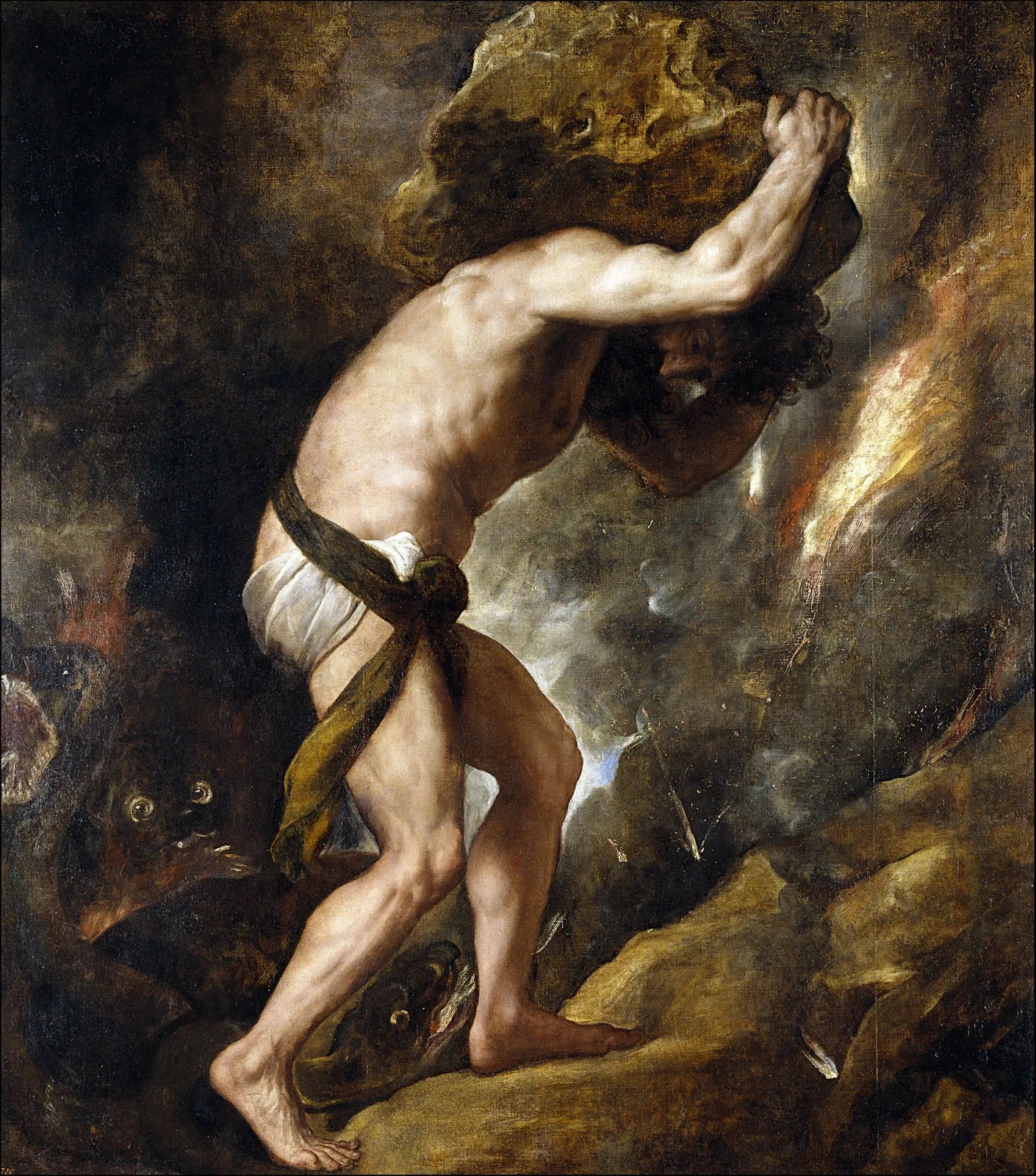
Sisyphus, oil on canvas by Titian, 1548–49; in the Prado Museum, Madrid.
A few years ago, while stumbling through the latter parts of my youth I found a poem with meaning, or rather imbued it with meaning for myself, and that guided me through my most existentially and emotionally dark times. That poem drew excerpts from a work by French Philosopher Albert Camus called The Myth of Sisyphus. Here are some sections of Camus’ philosophical crescendo:
Happiness and the absurd are two sons of the same earth. They are inseparable. It would be a mistake to say that happiness necessarily springs from the absurd discovery. It happens as well that the felling of the absurd springs from happiness. “I conclude that all is well,” says Œdipus, and that remark is sacred. It echoes in the wild and limited universe of man. It teaches that all is not, has not been, exhausted. It drives out of this world a god who had come into it with dissatisfaction and a preference for futile suffering. It makes of fate a human matter, which must be settled among men.
All Sisyphus’ silent joy is contained therein. His fate belongs to him. …
Sisyphus returning toward his rock, in that slight pivoting he contemplates that series of unrelated actions which become his fate, created by him, combined under his memory’s eye and soon sealed by his death. Thus, convinced of the wholly human origin of all that is human, a blind man eager to see who knows that the night has no end, he is still on the go.
The rock is still rolling.
~ Albert Camus, The Myth of Sisyphus
What you see here in the manuscript that follows are my moments of pivoting back down the hill and contemplating our fates while staggering back to my rock.
-SHB
Email: scott (at) sbowers (dot) dev
My other work: